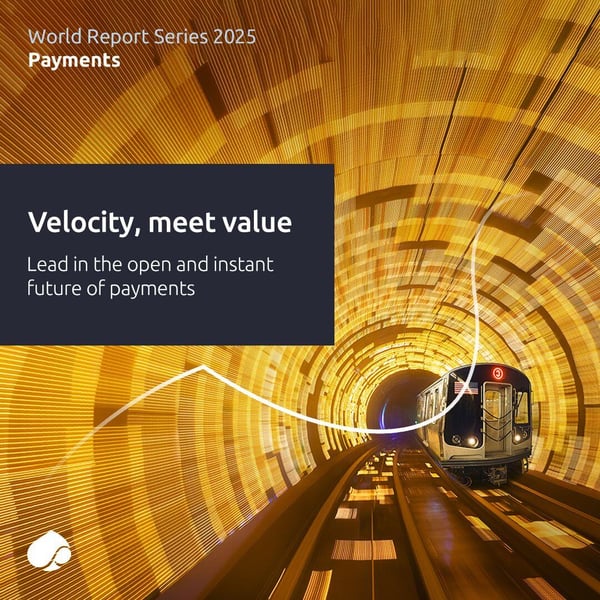How banks and PSPs can turn a ‘Request to Pay’ into a full – liquidity and time saving - business service
Last year at Money2020 Europe (“when will I see you again…?”), I spoke about Purpose and Control and I told the audience how my grandad still whispers in my ear in times of need: “You feel out of control, but darling you are not; the choice is yours on how to deal with this, grab that power with both hands”. Wise words that ring true for all of us, particularly today. For here we are all in the same boat, lifted off the ground, shaking by the skin of our neck and jolted back to earth. How will we land? Greater minds than mine think and speak of this. I simply stick to: “This is a challenge, a major one, but also an opportunity, a gift to look at things totally differently, simply because we now can see”.
So reading, rather than scanning the news, a few articles caught my attention this week, payment geeks as we are at BankiFi. As the early novelty of the lockdowns settled, the media – social and print – are pouring good advice upon us. As consumers, as parents, as business owners. “Start cancelling direct debits on things you might not need over the next few months'' (Good Housekeeping), “Increase in direct debit cancellations since the crisis began” (Civil Society News ) on the fact that so many donors had been cancelling direct debits to charities). And in our industry news we read about web shops having to wait for their money because of the enormous increase in requests for chargebacks the PSPs had to process. An article (in the Dutch language financial daily) explains the notion that when people pay, say, their gym membership by direct debit, and the gym goes out of business, they come for recourse to the payment services provider. Increases of around 20% have been commonplace over the past month.
The same issue, even if businesses do not fail, now occurs when people feel uncertain about their future cash position. Because of the lack of a level playing field in a direct debit relationship they now rather opt to cancel the agreement in full, as per the story above around donations. The lack of control and trust is the real issue, the payment instrument of direct debit is simply the wrong one here. Cancelling is not necessarily what people want, but they do this as a preemptive strike. Better be safe than sorry. All of the control is with the payee or the organization and none with the payer, the client.
On top of that we should also remember the rather painful process many companies had to go through to move from local direct debit schemes to SEPA direct debit. Once it is in place, companies love it. As per the World Payments Report by Capgemini 2019, around 20% of the non-cash payments in Europe are direct debits. But it is a hard process to go through with two parties and not always for frequent payments like utility bills, often also for an annual or quarterly modest amount of money like domestic services or club memberships. Not a great experience between a thankful business or charity and a client, but administrative hassle.
At the consumer end many recurring payments are being settled by simple requests to pay, sent from mobile to mobile. Businesses, even sole traders, require a bit more. An added invoice, flexible payment terms, options to pay by credit transfer or card would all make this a great dialogue between the two parties and saving time and saving admin hassle and giving choice.
And let’s not forget that beyond the negative scenarios mentioned above, a bank or PSP labeled Request to Pay solution offers a great service for existing parties that do already have a trusted trading relationship. Both parties should be in control of the timing as well getting the money and we all know that balanced relationships tend to last and mature.
But, you’ll say, Request to Pay solutions and schemes are already on the road maps of the EBA, Swift, EPC and Pay.UK. True, although the latter announced this week that it has decided to temporarily delay the publication of its Request to Pay framework. These are all great initiatives, but they have some major draw-backs in common: they will not help you now that your customers need this pain point solved today and moreover make you dependent on whatever the other parties involved might want ‘in or out of it’.
As the current time frame demands optimal flexibility and agility from all of us in all aspects of life, this is the time to practice it also inside our siloed bank and payment enterprises. Come out of the trenches and choose your battle, and your customers are just that. Go to battle for them and go fast. They need you now. Don’t go to the foundry to weld your own arms, look for white label tech providers to work with you, lowering your R&D investments and spend on tech as you and your customers go live.
We all know full well that the revenues and use cases of Instant Payments and Open Banking will come from a horizontal – full service based – view, not from the most magical vertical solution.
Banks (challenger and incumbent) and payment service providers are working around the clock to help their (business) customers, so they are well placed to be the ones to solve this issue of late payments, lost payments, unnecessary cancellations and on the upside offer a real rich service beyond payments. Sure, niche apps aim to offer similar experiences, but right now all of us are focused on getting a grip on our lives in flux today and we do not necessarily want to get lost in ‘a jungle of apps’. Follow what your customers use already, your bank channel, your app, your portal. It is easiest and most trusted if it comes from you: the PSP they know, the bank they know.
Embed a Request to Pay solution plus Communication plus Choice plus Collections plus Consolidation in the channel your customers know and like today.
As the financial services industry at large is not seen as the cause of the current crisis; why not play a great part in the solution? Expand on your customer relationship, dive deep and get close. Your business clients will get serviced, nudged and paid. Their client/payer has a level of control over the when, how and ultimately if. And through them you – as a bank or PSP - might win new customers too as they experience a great service 'second' hand. Optimise your investment in Instant Payments and Open Banking and add a little bit of RTP4 on the go.
“When (feeling) out of control – choice empowers!” And the choice is ours! Wishing you all good health, a positive open mind and a lot of energy in the months to come.
Also read this recent article in The Fintech Times (page 30) : Money in the ‘bank’ for all in which BankiFi's Mark Hartley talks about helping businesses get paid quicker while saving time and money in chasing late payments.
Download the press release on BankiFi's launch of RTP4
.png)


.png?width=600&name=Rectangle%20316%20(3).png)
.png?width=600&name=Webinar%20assets%20(1).png)

